International
Ukrainians search grave site for relatives after Russians driven out

IZIUM, Ukraine (Reuters) -Residents of the Ukrainian town of Izium searched for dead relatives in a nearby wooded grave site as emergency workers continued to exhume what they said were hundreds of bodies found after Russian forces were driven from the region.
The causes of death for those at the grave site, discovered last week, have not yet been established, although residents say some died in an airstrike. Ukrainian authorities have said at least one of the bodies had tied hands and rope marks on the neck.
Ukrainian President Volodymyr Zelenskiy said investigators had discovered new evidence of torture used against the people buried in Izium, one of more than 20 towns retaken in the northeastern Kharkiv region after a lightning advance earlier this month.
“More than 10 torture chambers have already been found in the liberated areas of Kharkiv region, in various cities and towns,” Zelenskiy said in a video address late on Saturday.
“Torture was a widespread practice in the occupied territories. That’s what the Nazis did – this is what (the Russians) do,” he added. “They will answer in the same way – both on the battlefield and in courtrooms.”
Clutching a neatly written list of names and numbers, resident Volodymyr Kolesnyk stepped between numbered graves looking for relatives he said were killed in an airstrike on an apartment building shortly before Izium fell to Russian forces in April.
READ ALSO:
- Okada: Fear grips riders in Lagos as statewide ban looms
- Nigeria Gets Aviation Varsity, Commences Nov 2022 – FG
- Our position on petrol subsidy hasn’t changed, NLC replies Keyamo
He paused before a cross marked with the number 199 and after checking the list given to him by a local funeral company that dug the graves, carefully hung a small sign on it bearing the name of Yurii Yakovenko, his cousin.
Cross number 164, he said, was his cousin’s wife. And 174, his cousin’s mother, Kolesnyk’s aunt.
“They buried the bodies in bags, without coffins, without anything. I was not allowed here at first. (The Russians) said it was mined and asked to wait. And there was a lot of them in the woods, so it was scary to come here,” Kolesnyk told Reuters.
MOSCOW DENIES ATROCITIES
Moscow has not commented on the discovery of the graves. It regularly denies committing atrocities in the war or targeting civilians.
The head of the pro-Russian administration that abandoned the area earlier this month accused Ukrainians of staging the atrocities at the city of Izium. “I have not heard anything about burials,” Vitaly Ganchev told Rossiya-24 state television.
Russian President Vladimir Putin has not responded to the accusations but he brushed off Ukraine’s swift counteroffensive, casting Russia’s invasion as a necessary step to prevent what he said was a Western plot to break Russia apart.
“The Kyiv authorities announced that they have launched and are conducting an active counteroffensive operation,” Putin said on Friday after a summit of the Shanghai Cooperation Organisation in the Uzbek city of Samarkand. “Well, let’s see how it develops, how it ends up,” he said with a grin.
Putin has warned Moscow would respond more forcefully if its troops were put under further pressure, raising concerns he could at some point use unconventional means like small nuclear or chemical weapons.
U.S. President Joe Biden, what he would say to Putin if he was considering using such weapons, replied: “Don’t. Don’t. Don’t. It would change the face of war unlike anything since World War Two.” He made the comment in a “60 Minutes” interview, a clip of which was released by CBS on Saturday.
Russia has likely extended the locations it is prepared to strike, including targeting civilian infrastructure, in a move to undermine the morale of the Ukrainian government and people, the British https://twitter.com/DefenceHQ/status/1571373728008736769 military said on Sunday.
Five civilians were killed in Russian attacks in the Donetsk region over the past day, while in Nikopol several dozen high-rise and private buildings, gas pipelines and power lines were damaged by Russian strikes, the regional governors said separately on Sunday.
Some military analysts have warned Russian might also stage a nuclear incident at the Russian-held Zaporizhzhia nuclear power plant, Europe’s largest.
Russia and Ukraine have blamed each other for shelling around the plant that has damaged buildings and disrupted power lines needed to keep it cooled and safe.
One of the plant’s four main power lines has been repaired and is once again supplying the plant with electricity from the Ukrainian grid, the United Nations nuclear watchdog said on Saturday.
Ukraine has also launched a major offensive to recapture territory in the south, where it hopes to trap thousands of Russian troops cut off from supplies on the west bank of the Dnipro river, and retake Kherson, the only large Ukrainian city Russia has captured intact since the start of the war.
Russian security forces fired on an armed gang of criminals in the centre of Kherson late on Saturday and “neutralised” them, Tass news agency reported.
RIA news agency cited a security source as saying the gang involved had been a “sabotage and reconnaissance group” but gave no details.
Reuters
International
US to Nigerians: Overstaying visa attracts permanent ban
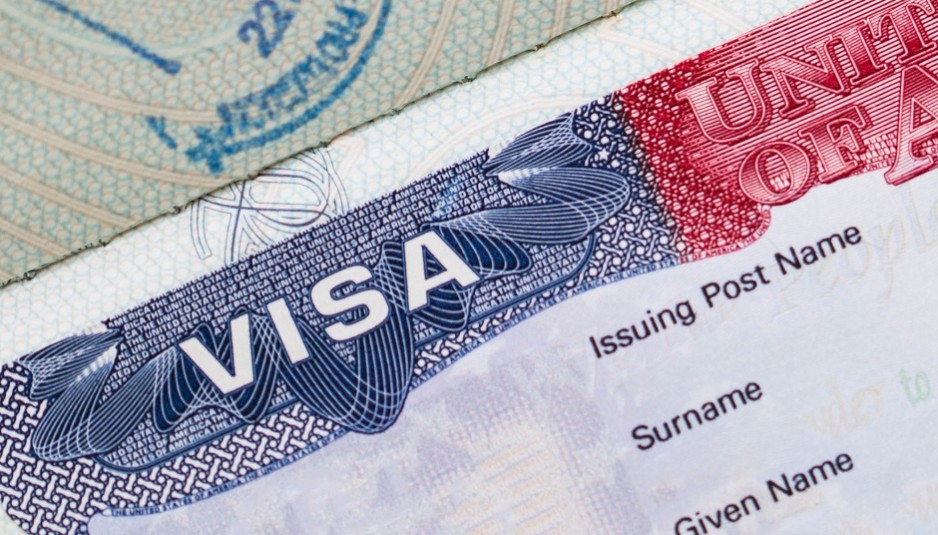
US to Nigerians: Overstaying visa attracts permanent ban
The US government has issued a harsh warning to Nigerian travelers about the serious repercussions of overstaying their visas, underlining that violators may face lifelong bans from re-entering the nation.
The US Mission in Nigeria issued the warning on Monday via its X.
The immigration authorities stressed that consular officials have access to an individual’s entire immigration history, making it practically impossible to dodge sanctions for previous infractions.
They also stated that passengers are responsible for conforming to the restrictions of their visa and that ignorance of visa regulations will not be recognised as an explanation.
“If you overstay your US visa, you could face a permanent ban on travelling to the United States. Consular officers have full access to your immigration history and will know about past violations. There is no such thing as an ‘honest mistake’ – it is your responsibility to use your visa correctly,” the US Mission stated.
READ ALSO:
- Nigerian doctor pioneers W’Africa first robotic prostate cancer surgery
- How 12 inmates escape in Kogi jailbreak – Prison spokesman
- Fubara: Supreme Court reacts to photo of Justice Agim with Wike
It was gathered that those who overstay their visa for more than 180 days but less than a year may face a three-year re-entry ban. If the overstay exceeds one year, the penalty could be a 10-year ban.
Repeat offenders and those with major offences face a permanent lifetime ban.
Since Trump’s return as president, America’s immigration policies have been stricter.
On February 16, 2025, the federal government expressed great concern regarding the deportation of its people from the United States, requesting Washington to follow international treaties and ensure a dignified repatriation procedure.
During a meeting with the US Ambassador to Nigeria, Richard Mills Jr, the Minister of State for Foreign Affairs, Ambassador Bianca Odumegwu-Ojukwu, underlined the emotional and financial hardship that these deportations are putting on Nigerians in the US and their families at home.
Odumegwu-Ojukwu stated that “about 201 Nigerians are currently detained in US immigration centres, with around 85 cleared for deportation,” adding that the government was advocating for a more humane approach to the process.
“With the new US administration in place, we expect commitments to ensure that, if repatriation occurs, it will be done with dignity,” she said.
Odumegwu-Ojukwu emphasised that many Nigerians in the US rely on remittances to support their families and education back home.
She also emphasised that deportations, particularly for those with no violent criminal history, should not be abrupt or traumatic.
“We are asking as a country whether they will be given ample time to handle their assets, or will they just be bundled into planes and repatriated?” She questioned.
US to Nigerians: Overstaying visa attracts permanent ban
International
2 Nigerians in US face heavy jail term over fraud
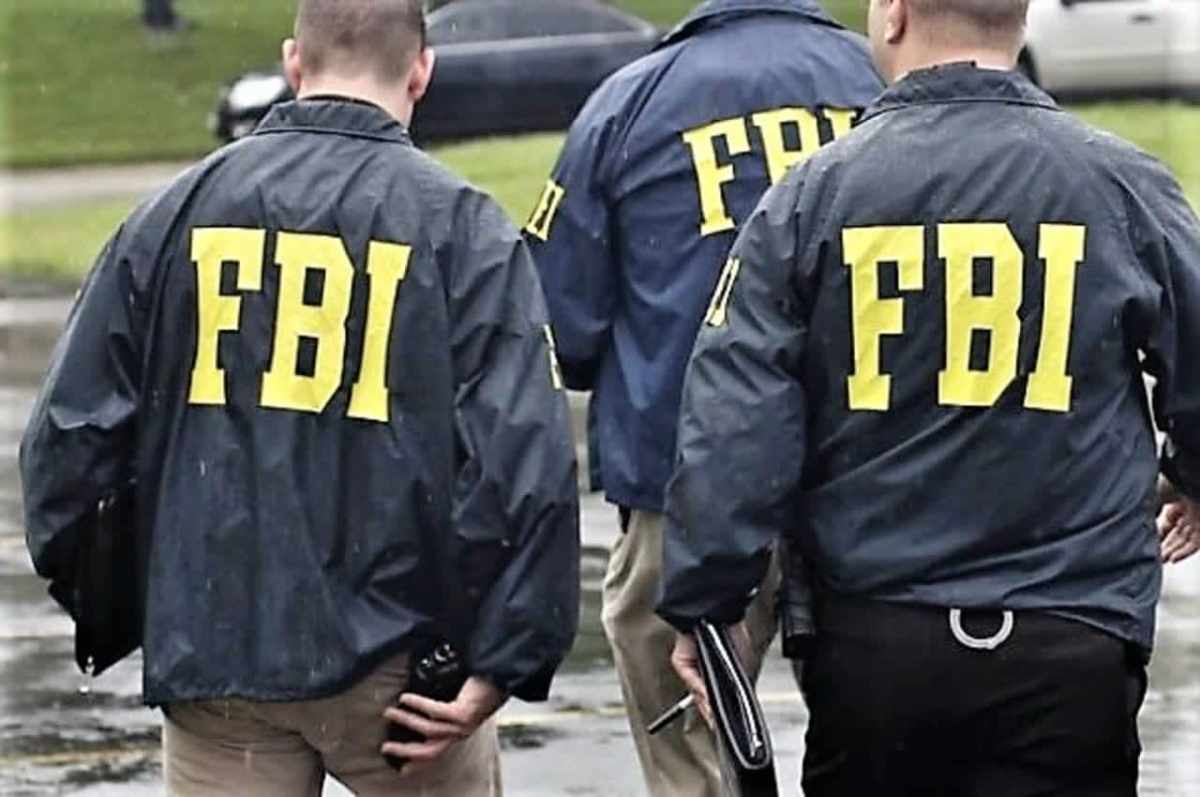
2 Nigerians in US face heavy jail term over fraud
Two Nigerian nationals based in the United States, Solomon Aluko and Nosakhare Nobore, alongside four others, are facing a possible 62-year prison sentence each after being arraigned before a New York court for allegedly defrauding the U.S. government of $50 million.
It was gathered from a court document obtained on the US Department of Justice website on Sunday that the suspects were arraigned on four counts bordering on conspiracy to commit wire fraud and bank fraud, conspiracy to commit money laundering, engaging in a monetary transaction in property derived from specified unlawful activity, conspiracy to defraud the government, and aggravated identity theft.
The court document indicated that the suspects committed the offences between March 2020 and March 2025, in the Southern District of New York and across other places in the US.
The charge sheet noted that “the defendants, and others, worked together to steal money that did not belong to them by passing counterfeit, stolen, and fraudulently obtained cheques. They submitted the cheques to banks and then withdrew or transferred funds before the banks could determine that the cheques were counterfeit, stolen, or fraudulent.”
According to the document, the defendants allegedly stole information and identities of different individuals and businesses and used the information and identities to open bank accounts through one of their members, who was a bank teller at the time.
The bank accounts were allegedly used to deposit fraudulently obtained cheques from different US agencies.
It continued, “Once the cheques were deposited, the defendants withdrew the fraudulently obtained funds in cash or transferred them to other bank accounts under their control.
“Throughout their scheme, the defendants attempted to obtain approximately $80 million in total. They succeeded in depositing approximately $50 million.”
In a statement accompanying the document on the DoJ website, it was revealed that the suspects created a ‘fraud bible’, which contained specific instructions on how each member of the syndicate would operate.
READ ALSO:
- Canada denies 13,000 Nigerians refugee status
- Lagos Govt to redesign Oshodi motor park for rail integration
- Nurse punished in UK for addressing convicted transgender paedophile as ‘Mr’
- Ex-LG chair challenges El-Rufai’s claims on council funds
It further noted that the syndicate also openly communicated its operations via a Telegram group where discussions on their operations were held.
Commenting on the activities of the syndicate, the statement quoted the US FBI Acting Assistant Director, Leslie R. Backschies, as saying, “These six defendants allegedly used sham businesses, stolen, and fake identities to operate a multi-year cheque fraud scheme, resulting in $50 million in illicit funds being deposited into their accounts.
“The defendants brazenly attempted to exploit multiple United States government programmes in their attempts to illegally enrich themselves. The FBI will continue to ensure fraudsters attempting to lie, cheat, and steal from the government answer for their crimes in the criminal justice system.”
Similarly, the US IRS Special Agent in Charge of the case, Harry Chavis, said, “This group of suspects openly communicated about their fraud, taking pride in the multiple schemes that stole nearly $50 million from the American public.
“They lied and cheated a benefits system meant to help struggling businesses that need it, all while stealing cheques from agencies that assist the elderly and veterans. This gang of ‘bag hunters’ will now face justice for multiple charges.”
Following their indictment, the statement noted that the suspects could be sentenced to 62 years imprisonment each for the four counts.
It acknowledged that the defendants were presumed innocent until proven guilty by the court.
“Anand, 34, of Queens, New York; Nobore, 29, of Edgewater, New Jersey; Pappas, 28, of Miami, Florida; Ujkic, 44, of Ft. Lauderdale, Florida; Aluko, 29, of Hackensack, New Jersey; and Gonzalez, 28, of North Bergen, New Jersey, are each charged with conspiracy to commit wire fraud and bank fraud, which carries a maximum sentence of 30 years in prison; conspiracy to commit money laundering and engaging in a monetary transaction in property derived from specific unlawful activity, which carries a maximum sentence of 20 years in prison; conspiracy to defraud the government, which carries a maximum sentence of 10 years in prison; and aggravated identity theft, which carries a mandatory sentence of two years in prison.
“The maximum potential sentences are prescribed by Congress and are provided here for informational purposes only, as any sentencing of the defendants will be determined by a judge.
“The charges contained in the indictment are merely accusations, and the defendants are presumed innocent unless and until proven guilty,” the statement concluded.
2 Nigerians in US face heavy jail term over fraud
(Punch)
International
Canada denies 13,000 Nigerians refugee status
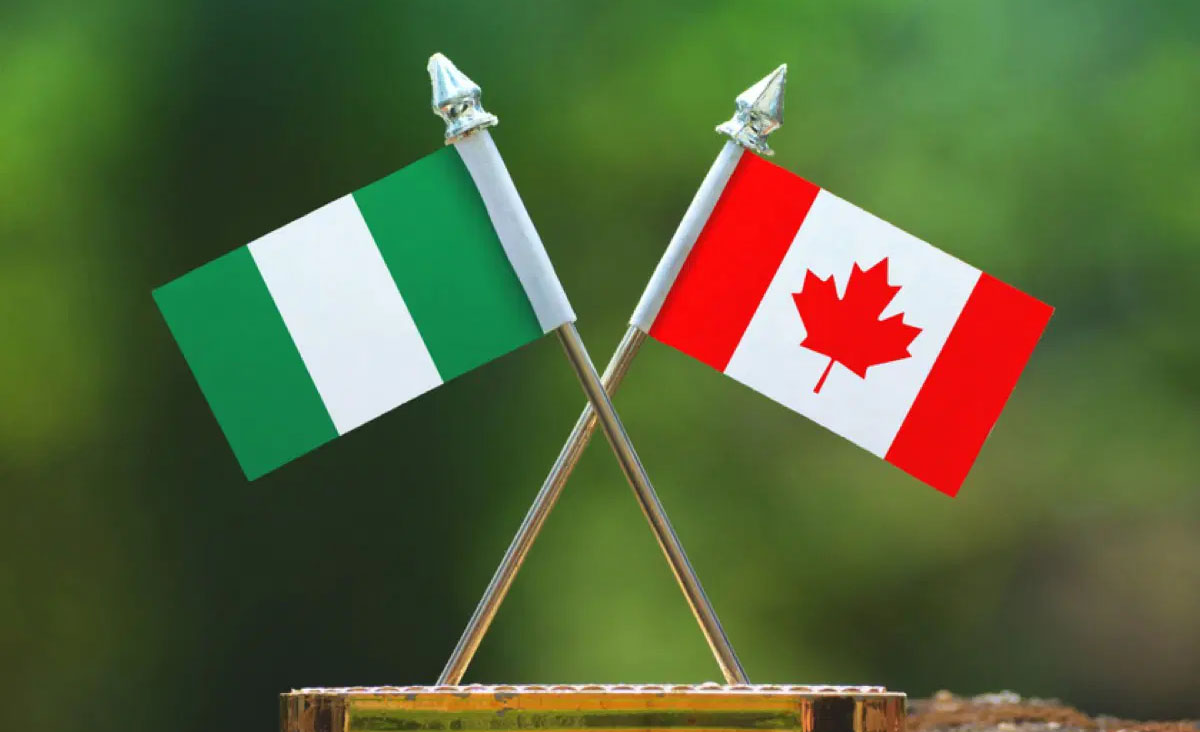
Canada denies 13,000 Nigerians refugee status
Over 13,000 Nigerians who applied for refugee protection in Canada from January 2013 to December 2024 were rejected.
According to data from the Refugee Protection Division (RPD) of the Immigration and Refugee Board of Canada, this figure includes 811 Nigerians whose applications were turned down in 2024.
The board placed Nigeria among the top five countries with the most rejected claims.
Mexico tops the list with 2,954 rejections, followed by India and Haiti, which have 1,688 and 982 rejected claims, respectively.
Colombia is in fourth place with 723 rejected claims, while Nigeria is in fifth place with 13,171 rejections.
In Canada, asylum seekers get refugee protection if the RPD satisfactorily confirms that their claims meet the United Nations definition of a Convention refugee.
In its definition of the Status of Refugee, the 1951 UN Convention states refugees are persons who have a substantiated fear of persecution because of their race, nationality, religion, political ideology or membership in a particular social group, which can include sexual orientation, gender identity, being a woman and persons living with HIV/AIDS.
READ ALSO:
- Lagos Govt to redesign Oshodi motor park for rail integration
- Nurse punished in UK for addressing convicted transgender paedophile as ‘Mr’
- Ex-LG chair challenges El-Rufai’s claims on council funds
However, in Canada, asylum seekers are expected to show evidence that they are in danger of torture, risk to their life or risk of cruel and unusual treatment or punishment if they return to their country of nationality.
According to the Refugee Board’s application guideline, if an applicant’s “claim is eligible, it is sent to the RPD to start the claim for refugee protection process.”
The breakdown of the rejections showed that 127 Nigerian claims were rejected in 2013, 241 in 2014 and 248 in 2015.
Canada denies 13,000 Nigerians refugee status
-

 metro2 days ago
metro2 days agoCourt refers Ojukwu property case to alternative dispute resolution
-

 Entertainment2 days ago
Entertainment2 days agoSome ladies in movie industry ready to sleep their way to fame — Jide Kosoko
-
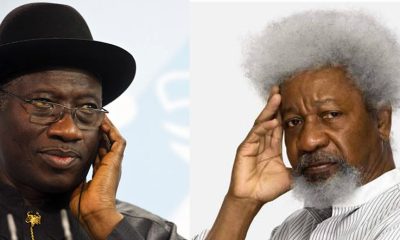
 metro2 days ago
metro2 days agoPresidency blasts Jonathan, Soyinka over comments on emergency rule in Rivers
-

 metro14 hours ago
metro14 hours agoAttack on Mufty of Ilorin: Onikijipa Family Charges Stakeholders to Call Sheikh Habibullahi Al-Ilory to Order
-

 Health20 hours ago
Health20 hours agoNigerian doctor pioneers W’Africa first robotic prostate cancer surgery
-
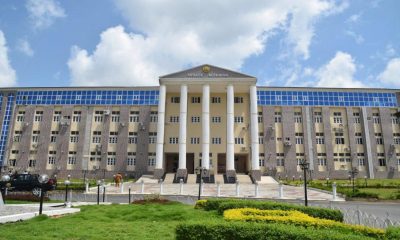
 metro2 days ago
metro2 days agoAdeleke University didn’t suspend Muslims for praying – MSSN
-
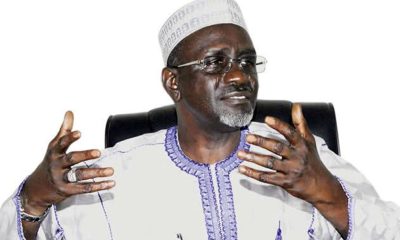
 Politics3 days ago
Politics3 days agoAtiku, Obi, El-Rufai’s coalition can’t unseat Tinubu – Shekarau
-

 metro3 days ago
metro3 days agoDisregard court order against Rivers Administrator, says Fubara’s aide









